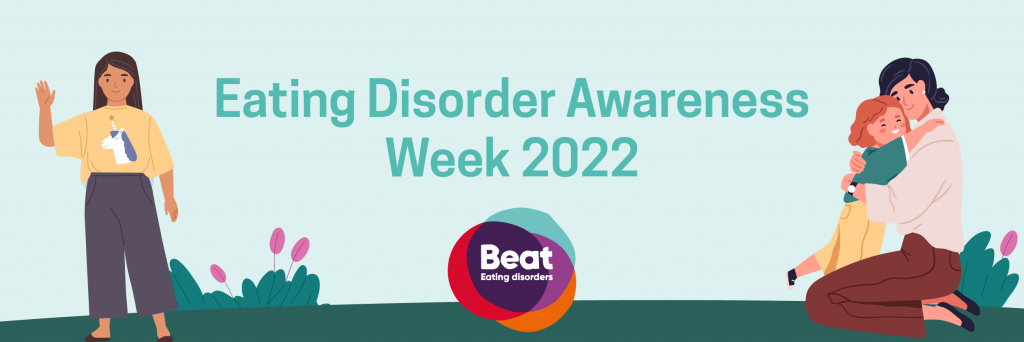Eating Disorder Awareness Week 2022
At Unity Foster Care, we understand that caring for someone with an eating disorder may bring its own unique challenges; including refusing to eat, binge eating or acting out. To help raise awareness of Eating Disorder Awareness Week, we’ve put together 8 tips on how to support your foster child through disordered eating and food-related health issues!
Always seek medical advice from a professional – these tips are intended as a guide only, and should never supersede advice from your GP or specialist.
Listen to them
As a foster parent, you’ll already know that simply listening to your foster child is one of the best ways to support them. Try not to interrupt whilst they’re talking, and only offer advice when they ask for it – sometimes, they just want to get their feelings off their chest!
Be patient
Dealing with, or recovering from an eating disorder is a lengthy process, and can sometimes takes years for the child to feel more in control of their eating habits. Don’t force recovery! Your foster child will be processing a lot of emotions, so be patient and remain calm when talking to them.
Don’t talk about their appearance
Whilst some people enjoy compliments about their appearance, it can be very triggering to someone with an eating disorder. Comments like ‘you look skinny’ or ‘you’re gaining weight nicely’ could actually be detrimental to their progression, so avoid mentioning how they look where possible. Instead, why not focus on their positive personality traits, such as how kind and caring they are?
Discover food freedom
Counting calories, tracking macros and monitoring fats in food is both damaging and counter-productive to anyone with an eating disorder. Create a meal plan that doesn’t revolve around portion size, calorie intake or carbs; make the plan about creating delicious, colourful meals that everyone will enjoy instead!
Build their self-esteem
Often, children with eating disorders also suffer from low confidence levels, anxiety or even depression. Regularly recognising their achievements, milestones or just giving them daily compliments may help boost their self-esteem! Build their confidence by focusing on their positive traits, such as kindness, and remind your foster child how appreciated and loved they are!
Food-free activities
When someone has an eating disorder, it may feel like their whole life is about food. Why not help them start a new hobby or class, such as ballet, yoga or football? Giving them time away from food-related issues and helping them meet new people is a great way to give your foster child some much-needed ‘them’ time.
Research, research, research
Caring for someone with an eating disorder can be very emotionally overwhelming, so we always recommend doing your research. Keep up-to-date on the latest tips and advice from qualified specialists, and get in touch with ED charities such as BEAT, who can offer personalised advice for your foster child!
Get professional help
If you’re concerned your foster child may have an eating disorder, speak to your GP. They’ll be able to provide invaluable support from a professional perspective, and may even refer your foster child to an eating disorder specialist. You should also tell your Supervising Social Worker of your concerns, so the agency and Local Authority can support you through the next steps.
Life changing events, stress and trauma are all known to contribute towards eating disorders in young people, so it’s important to make sure your Looked After Child has a healthy, stable relationship with food and note any worrying habits in your Carer Log. If you have any concerns, please contact the Unity Foster Care team, speak to your Local Authority or call your Supervising Social Worker.
To support BEAT’s campaign to introduce proper training on eating disorders in medical schools, click here!

